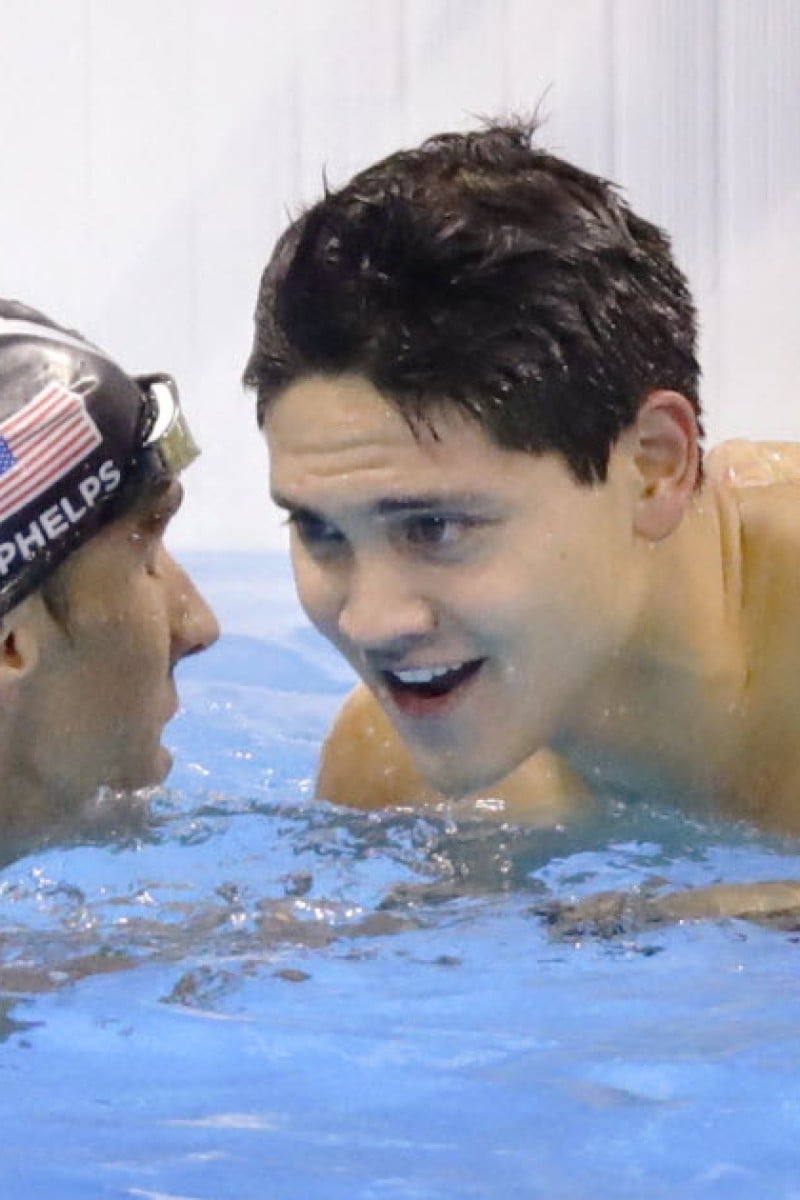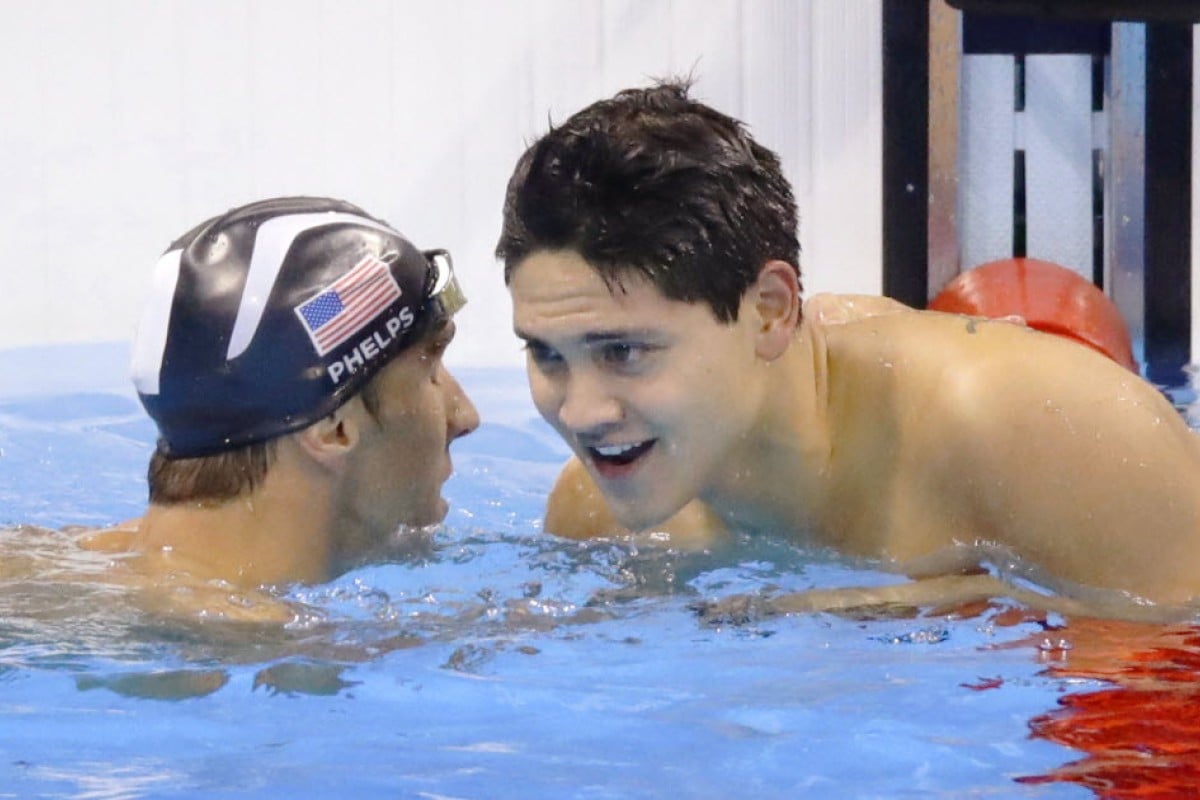
He shocked the world when he won Singapore’s first-ever Olympic gold AND set a new Olympic record
 Joseph Schooling of Singapore (R) shares a moment with Michael Phelps after winning the men's 100-metre butterfly final at Rio Olympics.
Joseph Schooling of Singapore (R) shares a moment with Michael Phelps after winning the men's 100-metre butterfly final at Rio Olympics.Singapore swimmer Joseph Schooling returned home to a rousing welcome yesterday, after winning the city-state’s first ever Olympic gold medal with a stunning victory over the legendary Michael Phelps. The 21-year-old Asian champion set a new Olympic record of 50.39 seconds in Rio on Friday as he edged out his American idol Phelps, the most decorated Olympian in history, in the men’s 100m butterfly final.
But as you’ve no doubt seen on social media, it wasn’t the first time the two had met. Flash back to 2008, and a then-13-year-old Joseph was working on a school essay, when Michael Phelps showed up to train at his club in Singapore ahead of the Beijing Olympics.
While other kids rushed at Phelps wanting photos, Schooling was frozen. He couldn’t believe his swimming idol was in front of him. Eventually, he mustered the courage to get a picture, too.
“I couldn’t really smile,” Schooling said. “I just opened my mouth.”
Their long-ago chance meeting went viral on Friday night, after Schooling upset Phelps in the 100-metre butterfly to win gold.
“A lot of this is because of Michael,” Schooling said. “He’s the reason why I want to be a better swimmer.”
Schooling might be unknown to the rest of the world, but in swimming circles he has solid credentials. He earned bronze in the 100m fly at last year’s world championships in Russia, and he owns a slew of medals from the Asian, Commonwealth and Southeast Asian Games.
The 21-year-old competes for the University of Texas, where he’ll be starting his third year this autumn. He swept the 100m and 200m butterfly at this year’s NCAA championships and swam on all three winning relays for his school.
In Rio, Schooling created a stir in the preliminaries, beating Phelps by 0.19 seconds in their shared heat. They swam in different semi-final heats, with Schooling winning his and Phelps finishing second in the other.
Schooling was just getting warmed up.
He won gold in an Olympic-record 50.39 seconds, leaving everyone – Phelps included – in his wake. His winning margin of 0.75 seconds was the largest since American Mark Spitz won gold at the 1972 Munich Games, and the time was faster than Phelps’ winning time four years ago in London.
Phelps steered Schooling in the proper direction during the medalists’ parade around the deck, the veteran of dozens of such walks showing the newest champion the way.
“I was like, ‘Dude, this is crazy’,” Schooling told Phelps. “He looked at me, he smiled and it’s just, ‘I know.’”
At the medallists’ news conference, Phelps urged reporters to ask Schooling some questions.
“I’m proud of Joe,” Phelps said. “I’ve been able to watch him grow and turn into the swimmer that he is.”
Arriving back home to an airport full of fans screaming: “Joseph, I love you!” and chanting “Schooling”, Schooling was in for more good news: by winning his country’s first Olympic gold, he earned a bonus of $1 million Singapore dollars (HK$5.7 million). He’ll have to give back 20 per cent to the National Sports Association for future training and development.
“I hope this paves a new road for sports in Singapore,” Schooling said. “I hope it shows that people from the smallest countries in the world can do extraordinary things. Hopefully, it changes all of sporting culture in Singapore.”
Schooling’s great-uncle Lloyd Valberg was Singapore’s first Olympian at the 1948 London Games. Hearing about him as a child, Schooling told his father he wanted to compete in the Olympics.
“This race means more to my family and my friends and those people who supported me. I did this for them,” Schooling said. “When you race for people bigger than yourself, I think it means a lot to accomplish what you wanted to.”